What I Saw in Palestine, Jordan and Lebanon
Posted in: Life in the Middle East, Programs
I joined Anera in 2015. When I first started, I was taken aback at just how impressive and thoughtful Anera’s programs were (and still are!). The humanitarian and development needs in the communities where Anera works are frequently all too visible, and often it is tempting to rush in with stopgap measures to address acute distress. While Anera does deliver emergency relief, our staff have worked tirelessly over the years to establish a network of connected programs that address all aspects of life. Our programs are aimed at treating the root causes of poverty, food insecurity, and lack of access to basic necessities like education and water, rather than just the symptoms of them.
This spring, I made my annual visit to see our programs and new project opportunities. When I landed, farmers from home gardens to agricultural farms were hard at work planting the seeds for summer and fall harvests. As food insecurity continues to grow throughout the region amidst growing economic instability, the importance of Anera’s integrated agricultural and economic security programs was more apparent than ever this time around. Here’s a quick recap of some of the amazing work I got to see in real life!
Palestine
I started my trip in Palestine visiting Anera’s Farms to Fosool (F2F) program. F2F is an integrated program that connects Anera’s greenhouse program, women’s cooperatives, and preschools in a holistic circle to meet the needs of each group through mutual support. While I’ve worked on F2F since its inception, I hadn’t had the opportunity to see all parts of the integrated programming at work until this trip. Ard El Tofula Preschool is in Um Al Nasser, a marginalized Bedouin village in North Gaza governorate. Like many children in Gaza, most of the students come from food-insecure families, making it a struggle to fully engage with school as a place to grow, learn and experience the joys of childhood curiosity.
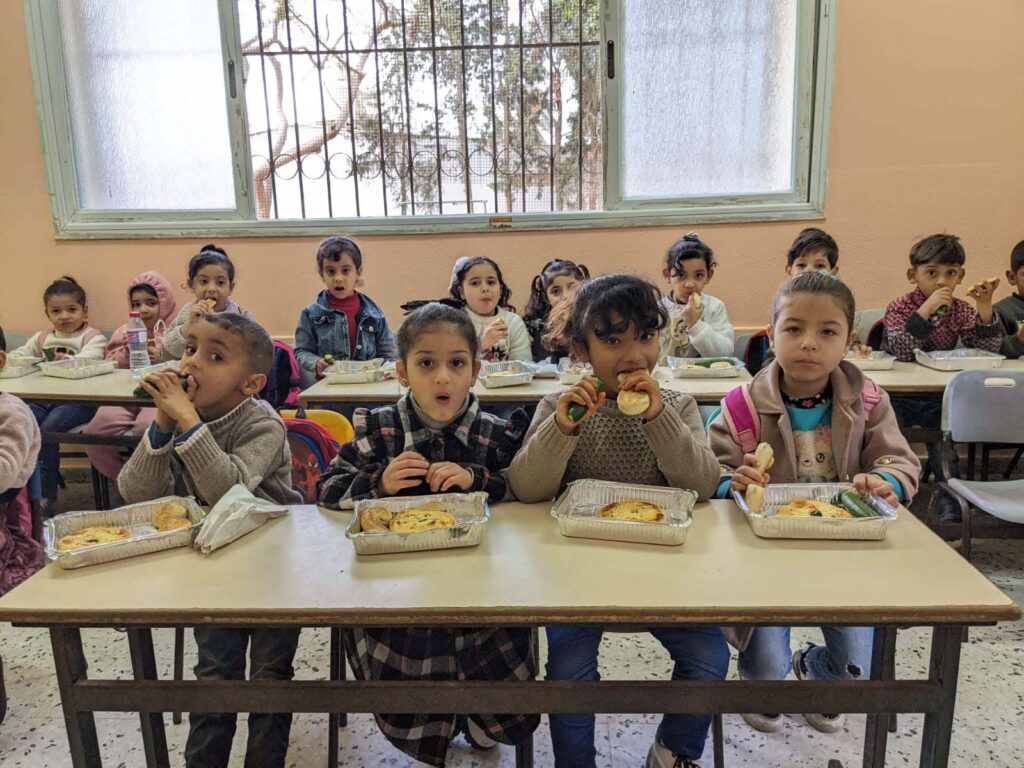

When F2F started, there was a bit of hesitation on the part of the students. Our program manager, Suad, explained that many families at the school are unable to afford the cost of three meals a day, leading them to skip breakfast as a negative coping mechanism. As a result, the students were reluctant at first to eat the morning meals provided by the F2F program. But during my visit, I felt the excitement in the air when breakfast was coming. Every student immediately reached for their cucumbers — they’ve grown to love fresh produce! Parents I spoke with noted that they’re incorporating more veggies at home at their children’s request. Teachers also noted that students are more engaged in class now that they’re getting their nutritional needs met.
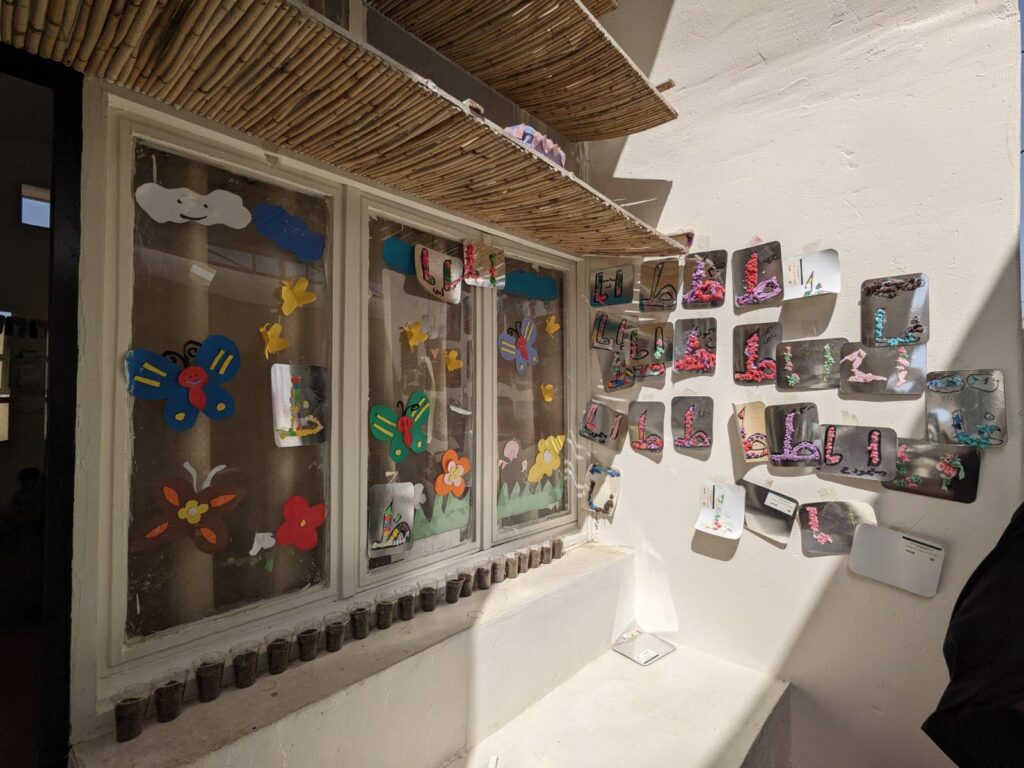

They’re excited to learn and play, and they’re even using the paper lids of their breakfast containers for art projects, decorating the classroom in the bright colors of their imaginations.
This year, Ard El Tofula Preschool also received solar-powered reverse osmosis systems as a part of the expanded F2F program. In the past, staff at the school had to spend a large portion of their limited budget purchasing drinking water. Now those funds are being used to provide the students with a better education. These savings are also allowing Ard El Tofula and other schools participating in F2F to invest in the partner farmers and women’s cooperatives responsible for growing and preparing the meals provided to students.
The F2F program does more than just provide a meal. It adds brightness to each child’s day and helps them have a head start on their learning. What started as a vision to nurture natural linkages between our programs in Palestine has grown into something truly incredible, becoming the blueprint for Anera’s integrated programs across the region. You can support our wholistic, integrated programs in Palestine by making a donation today. All donations made by May 31, 2023 will be DOUBLED to make twice the impact!
Jordan
The next stop on my trip was Jordan. We restarted our programming there three years ago, focusing mostly on healthcare and informal education. But this year we’re expanding into the agricultural sector. One thing we’ve noticed at Anera is that greenhouses not only provide a source of nutritious food and income for families, but they also create a real connection to the land that boosts mental health and overall wellbeing. For many families we work with, this connection to the land is an essential part of their identity.
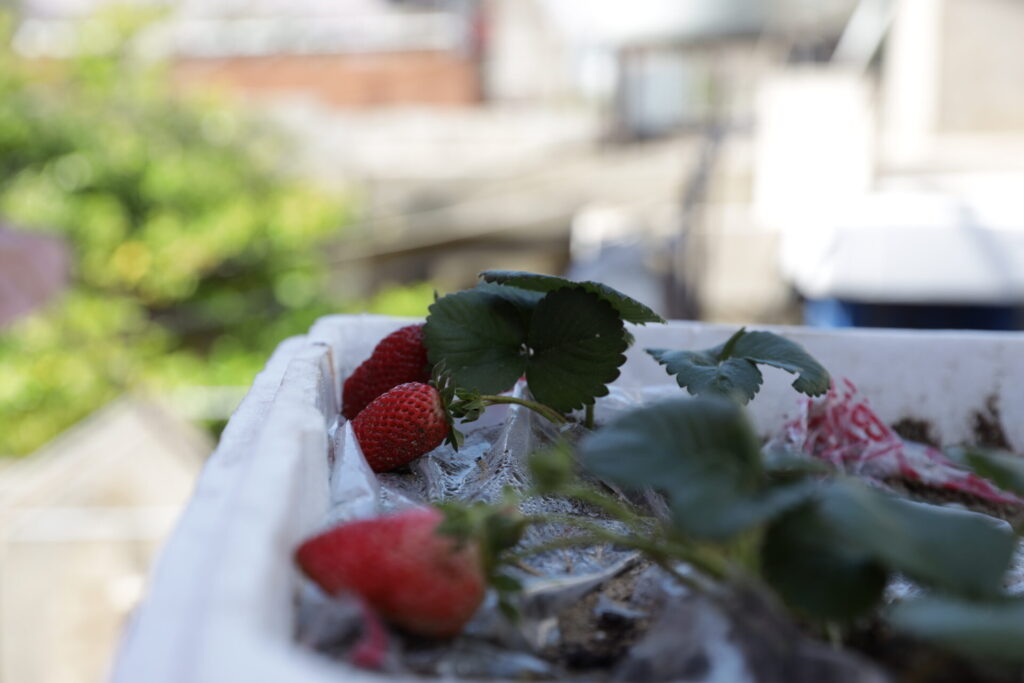

While in Jordan I sat in on the first day of a three-day training for our newly launched rooftop gardens initiative. This program is based on the successes of our rooftop gardens programs in Palestine, and will primarily benefit women heads of households. This was one of the most engaging trainings I’ve ever attended! The families selected for greenhouses learned about pesticide use, water-saving practices, crop rotation, and everything else related to good farming. Everyone in the room participated in the training and the struggles of daily life melted away into laughter and smiles.
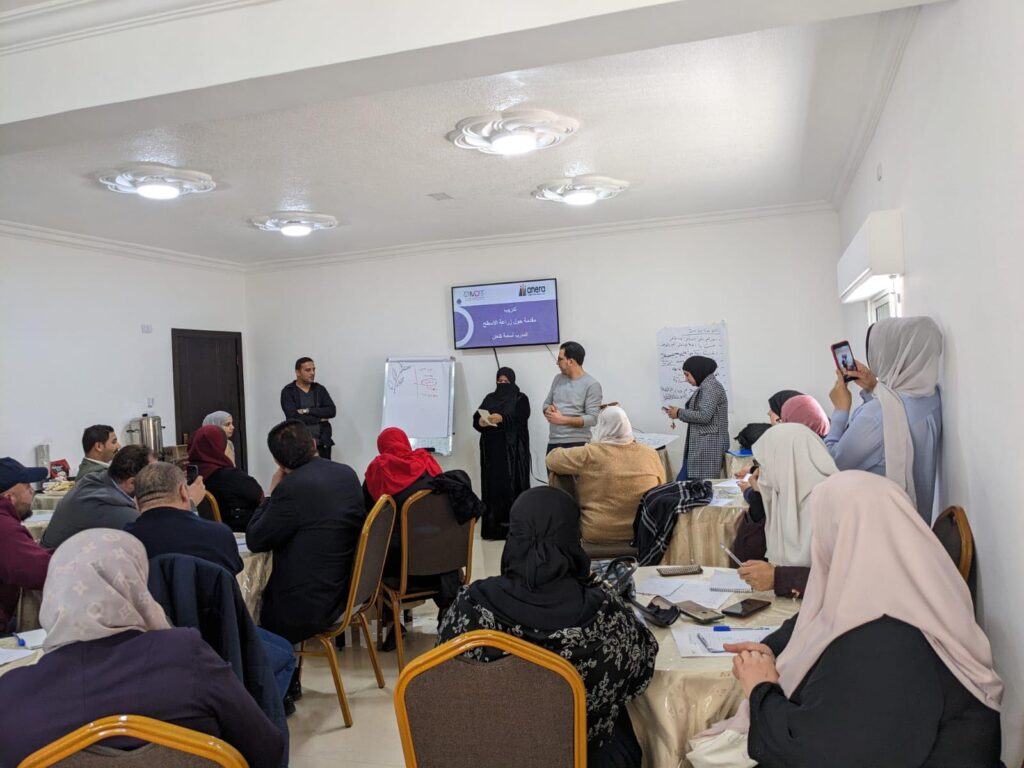

One woman I spoke with already had plans for how she was going to use the produce she harvested to build a livelihood for herself and her children. Diabetes is a growing concern throughout the region. Ghada sees her greenhouse as an opportunity to provide nutritious sweets without added sugars to help fill a need in the market. She plans on making jams from the strawberries she’s growing to sell in her community (and hopefully spread on her own toast as well!). She wasn’t alone. All of the participants receiving a greenhouse were buzzing with ideas for their future endeavors. These greenhouses aren’t only a source of income to these families, but a source of hope and pride.
When women are given access to the proper resources, they find ways to invest in themselves, their families and their communities. Your support can unlock the resources needed so that women like Ghada can turn their dreams into fulfilling, profitable realities. All donations made by May 31st will be doubled to make twice the impact!
Lebanon
I ended my trip in Lebanon. I’m sure you’ve seen the reports about the country’s economic decline. The figures are overwhelming: the currency has lost over 98% of its value since 2019, 80% of the country now lives in poverty, and the inflation rate is 124%. It’s one thing to read these numbers, it’s another to see exactly how they impact all aspects of life.
The challenges facing Lebanon are interwoven. Much of our programming has transformed to meet these increasing needs and changing circumstances. Our agriculture programs in Lebanon are robust, helping large-scale farmers by providing them with equipment and training them on updated agricultural techniques.
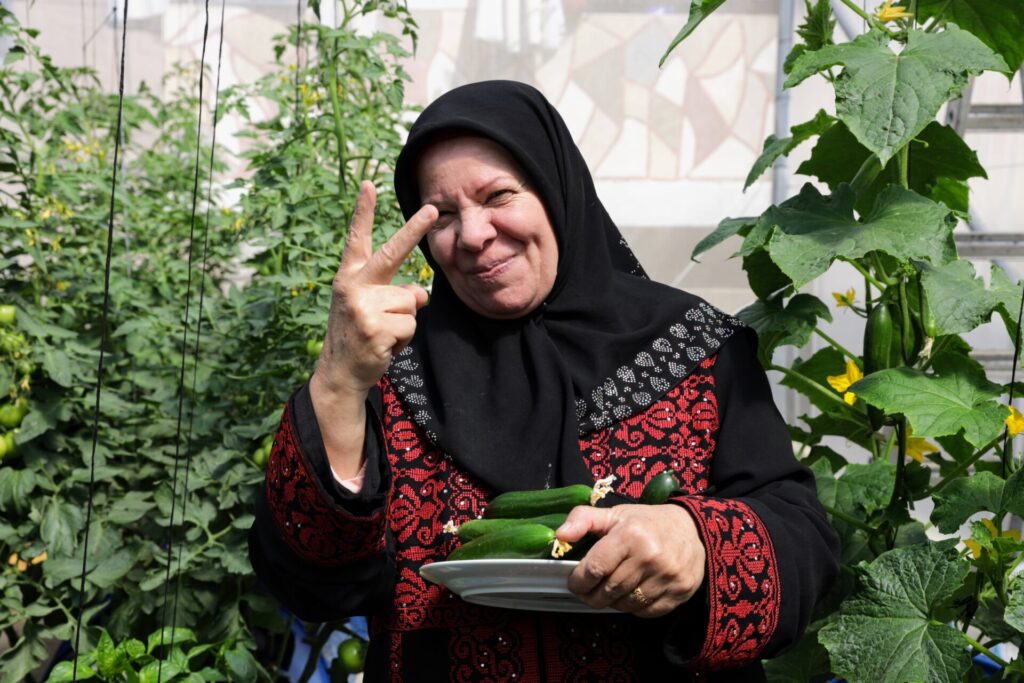

Lebanon has long relied on the importation of food despite having large swaths of arable land. With growing inflation and currency devaluation, purchasing imported food is increasingly unaffordable. Many of the farmers we work with are making a livelihood for themselves while supplying fresh produce for their communities. The farmers I spoke with are using their harvests to generate income for their families to pay for necessities and invest in the sustainability of their farms. One greenhouse farm I visited is using the money earned from their increased harvests and money saved from better agriculture techniques to purchase solar panels to power their home amid Lebanon’s energy crisis.
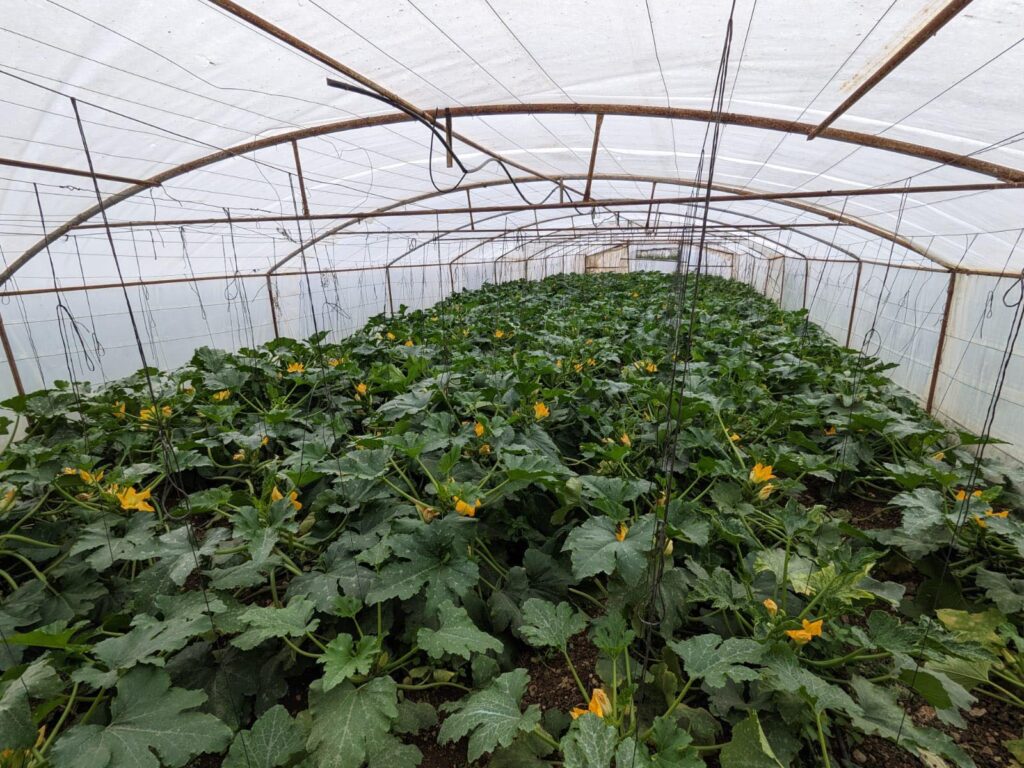

Another family farm I visited is using their funds to keep their daughters in school – one daughter wants to become an agricultural engineer! For the communities involved in farming, these Anera programs are life-affirming, allowing them to provide sustenance and hope for themselves and their country during terrible economic times.
Support from Anera donors like you makes all of this incredible work possible. The seeds that the Anera community has planted over the years continue to flourish, providing livelihood opportunities and access to critically needed resources in Palestine, Lebanon and Jordan. Thank you for all that you do, and whatever you can do again now to support our work.
OUR BLOG
Related
In Gaza, systematic bombardment of civilian housing and infrastructure has created a crisis of shelter that is endangering over a million.
The undersigned members of the Association of International Development Agencies (AIDA) urgently call upon the international community to intervene and halt settler attacks targeting Palestinian civilians and protect Palestinian communities near illegal settlements. The International NGO Community urges international actors…

